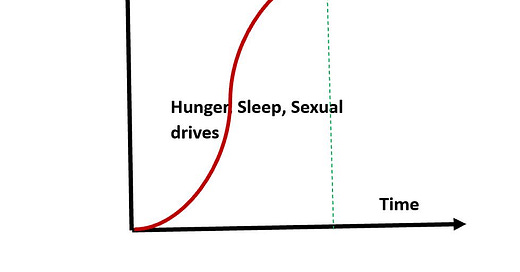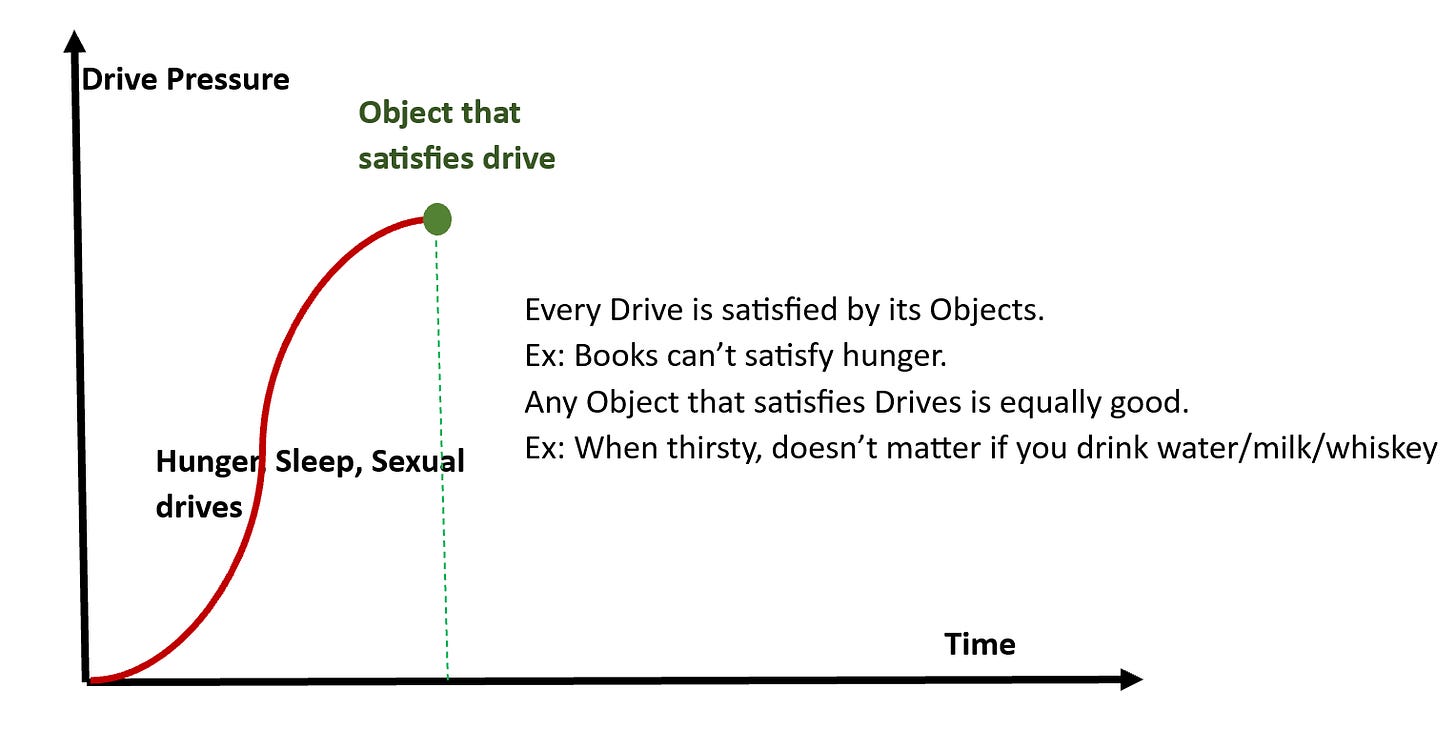Transcript: Drives part 1 - Freud's Drive Theory - YouTube
Introduction:
It started not with Freud. They are present in many places in 19th century, but Freud introduced them into the medical practice and made a whole school of psychotherapy that revolved around them.
Conflict:
When it comes to Freud we should actually begin one step before the drives, and that is with Freud’s assumption with his belief that the core facts about our mental life is conflict. Freud couldn't think about human minds that is conflict-free. Throughout his intellectual career he was looking for different answers to the question what is it that is in conflict in the human mind?! but there was never any hesitation when it came to this feeling. There's always conflict and there had to be two forces of approximately equal power that were fighting all the time.
So then the next question was more or less immediately resolved by Freud. He believed that these forces that were in conflict were drives, were more of a biological nature than of a psychological nature and he never believed that the psychological makeup of humans was strong enough to really resist the drives and really at any occasion defend them.
So there was something coming up from the biological makeup from the necessities of life, from life forces and then you could give it different names but it was something that you could postpone with great difficulty if at all. If not satisfied you would either physiologically die or psychologically suffer and so on.
Drive forces:
These biological forces that just by the way even in English should be called drives and not instincts. Freud believed had several elements that can be distinguished very easily and should be carefully observed. All drives have sources and the source of the drive is somewhere deep in our organism. It's not a psychological. It's a biological thing. We are craving for water we are craving for sleep and so on and so on. It's not our decision whether we will or we won't.
At the time when freud wrote his papers his metapsychological papers so roughly the time of the world war one, medicine biology and certain similar sciences didn't know much about this. We know a little bit more now and we can say something about the places in the organism anatomically physiologically where this happens. In Freudian times these were more attempts to figure things out that were quite still in the dark.
Drive Pressure:
The second element of the of the drive is that it exerts pressure. We recognize drives in our psychological world very clearly because after a certain time there is pressure and we feel discomfort.
For instance:
the more I'm talking now as we're recording this, the thirstier I'm getting and with minute and then 10 minutes and half an hour this thirst is going to become very uncomfortable and it will influence my concentration. I will still be trying to formulate smart sentences in the language that for me is foreign so requires double concentration but over time this will be more and more difficult because the drive will be exerting pressure and requiring of me to do something about it. The same with hunger, the same with sleep, the same with sexuality.
This pressure most usually functions in some sort of a rhythm. So there is some sort of a cycles. Usually people over time get trained that they are hungry a couple of times per day. Then we have a meal and then the hunger rises rises rises exerts more and more pressure then you have a meal and you return to the zero level where you were before that and then over time it again starts rising and then again it declines and so on. We can recognize this with most people in a very easy way. Most people sleep more or less the same amount of time and when we meet someone who sleeps four hours every night or not at all we are puzzled if not conserved to meet someone who sleeps 12 hours or six hours per night and six hours in the middle of the day we are again concerned.
Drive Objects:
There is we think with every drive its object. So if I'm thirsty I will not be craving for a book. That would be completely ridiculous because books are not objects for thirst.
With Freud it's very interesting that he thinks the objects are unimportant. Any object that can satisfy the drive wish is equally good. Whether I will now drink water or milk or whiskey or whatever for Freud is completely irrelevant. The same with his belief that the sexual drive does not have a natural object. Any part of the body and any person that can lead to the satisfaction of my drive is equally good.
And the same betrays belief that babies actually love their mothers because mothers provide the satisfaction of the hunger drive but which person is going to provide this and in what way is completely irrelevant. Only when it repeats and repeats and repeats, the baby starts connecting the satisfaction of the hunger drive and the pleasure that comes with it with a certain person and this person becomes important. This will change completely in what is called the object relations theory while Freud was still alive.



